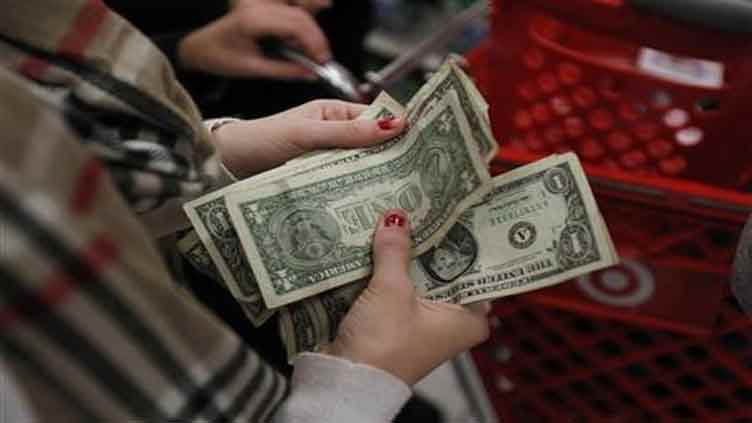Interest rates have broken the global wealth pump

Business
We have been living through a second Gilded Age, says Turchin
LONDON (Reuters Breakingviews) – “Everybody knows that the dice are loaded … the poor stay poor, the rich get rich.” In the 35 years since Leonard Cohen wrote these words, the rich in the United States have become even richer and the poorest have stayed resolutely poor.
In the past, periods of widening inequality have often ended in civil conflict. We have reached another such crisis point, says the complexity theorist Peter Turchin. Rising inflation and higher interest rates would appear to make matters even worse. In fact, they may offer peaceful resolution to the current era of social strife.
Turchin uses big data to reveal historical patterns – what he calls “cliodynamics”, after Clio, the Greek muse of history. In his latest book, “End Times: Elites, Counter-Elites and the Path of Political Disintegration”, Turchin argues that complex societies go through repeated cycles of internal peace and harmony, interrupted by occasional outbreaks of internal discord. The turning point comes after long periods of stagnating or declining incomes, growing inequality, declining public trust and an explosion of public debt.
As the rich multiply in numbers, the social pyramid becomes inverted, resulting in what Turchin calls “elite overproduction”. When there are more aspirants for positions of power than there are places, the elites start fighting among themselves and so-called “counter elites” emerge who threaten to bring down the system. Over the centuries, many countries have witnessed this pattern.
Turchin cites examples from medieval France to mid-19th-century China, when a failed applicant for the civil service, Hong Xiuquan, launched the Taiping Rebellion, the bloodiest civil war in history.
Elite overproduction arises when economic conditions favour the rich at the expense of everyone else. Turchin calls this a “wealth pump”. For instance, rapid population growth tends to depress real wages, raise food prices and boost land rents, benefitting landowners. Large-scale immigration boosts corporate profits, as does the widespread emergence of monopolies.
The Gilded Age in the United States followed the 1864 Immigration Act which was intended to ensure an adequate supply of cheap labour for business. In the late 19th century many industries consolidated. These developments lined the pockets of robber barons such as Andrew Carnegie and Henry Clay Frick, whose business operations merged to form US Steel, eventually fuelling a popular backlash.
We have been living through a second Gilded Age, says Turchin. In the United States, immigration and the offshoring of manufacturing has undercut the power of labour. American business has undergone another round of consolidation.
Corporate profits have risen to their highest level (relative to GDP) since 1950. Meanwhile median wages stagnated and unskilled workers experienced a drop in real incomes. Even before the pandemic, the rise in US life expectancy had gone into reverse due to increased drug overdoses and other so-called “deaths of despair”.
Elite overproduction is visible in the increasing number of college graduates who are over-qualified for the jobs on offer. The unseemly competition to enter top colleges came to public notice in 2019, when investigators found rich parents had paid bribes to get their children into the best universities.
Elite infighting has broken out: Turchin describes former President Donald Trump as a typical “counter-elite” who capitalised on popular discontent. We have now entered the pre-crisis phase. “Many observers were taken aback by the intensity of ‘cancel culture’ that appeared out of nowhere. But such vicious ideological struggles are a common phase in any revolution,” Turchin writes.
Missing from this analysis is the important role played by monetary policy. Ultra-low interest rates proved the greatest wealth pump ever devised, loading the dice in favour of the financial elite. Easy money inflated asset prices, lowered corporate borrowing costs and facilitated financial transactions. More deals and higher stock prices pushed up the pay of Wall Street bankers and senior corporate executives.
Since the turn of the century, when the Federal Reserve under Alan Greenspan reduced interest rates to a new post-war low, wealth has consistently grown faster than GDP. In the United States, household wealth soared even as net savings declined. According to a recent report by the McKinsey Global Institute, some $160 trillion of paper wealth has been created globally over the past two decades.
In McKinsey’s analysis lower interest rates pushed up real estate and corporate valuations, and encouraged more borrowing, much of which was spent on existing assets, including corporate acquisitions and share buybacks. By early 2021, US wealth had climbed to more than six times GDP, roughly twice its 1980 level. The explosion of paper wealth has been a global phenomenon. According to McKinsey, China’s net worth is now 800 per cent of GDP, approximately the same level as Japan reached at the peak of its asset bubble in 1990.
When a crisis point arrives, says Turchin, the elite is doomed to shrink. In the past this happened through massacre, imprisonment or forced emigration. But the transition doesn’t have to be violent: “It is possible to shut down the wealth pump and rebalance social systems without resorting to a revolution or catastrophic war,” writes Turchin. Downward mobility is the most benign solution. That’s where higher interest rates come in.
Last year, central banks raised borrowing costs to rein in galloping inflation. Bond and stock markets buckled, and property prices went into decline. Across the globe, households lost some $8 trillion of wealth, according to McKinsey.
Admittedly that’s only a fraction of the paper wealth created in recent decades, but it’s a start. Just as the rich benefitted most from ultra-low rates, so they suffer disproportionately from tighter money. The process of putting society on a more equal footing is painful but necessary. As Leonard Cohen put it in another of his songs, “The rich have got their channels in the bedrooms of the poor, and there’s a mighty judgement coming but I may be wrong.”

